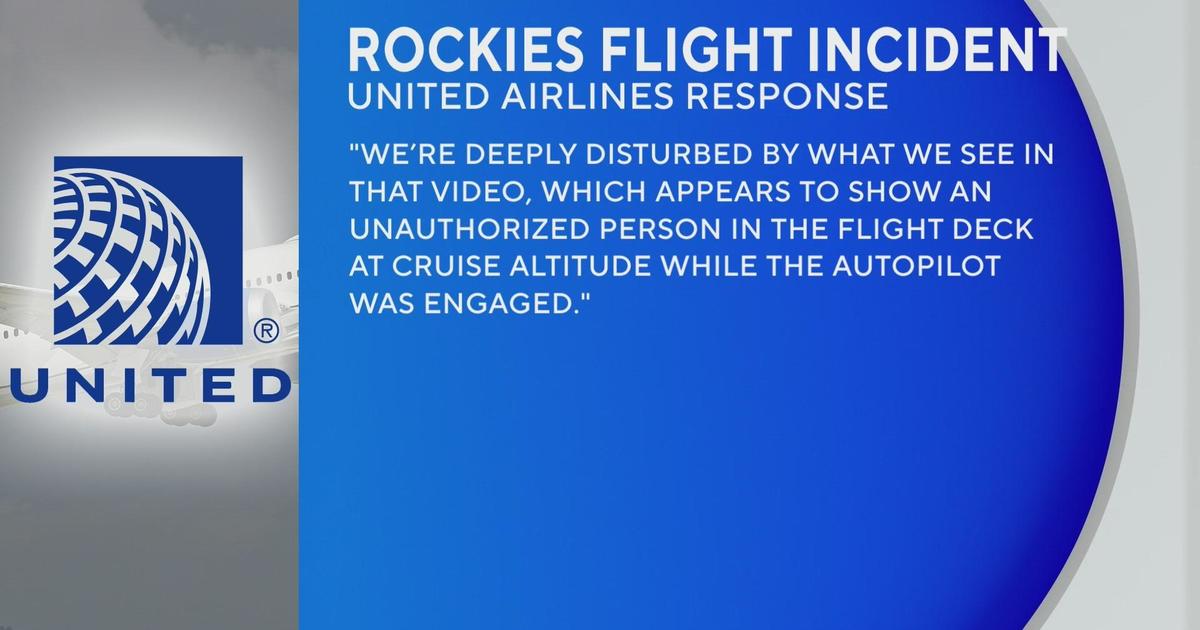Air Force: F-16 Pilot From Colorado Didn't Recognize Descent Before Crash
NORFOLK, Va. (AP) - A highly respected F-16 fighter pilot who died in a December crash in the Middle East didn't realize he was descending until the last second before impact, which didn't give him enough time to recover, an Air Force report released Monday says.
Capt. William H. DuBois, 30, of New Castle, Colorado, was flying in support of Operation Inherent Resolve when he crashed. The Air Force has not identified the country where he crashed, but the military has said it wasn't Iraq or Syria, where the U.S. is carrying out strikes against the Islamic State group.
DuBois crashed just before 5 a.m. in an unpopulated area, about 10 miles away from the classified base to which his jet was returning, according to the report by an accident investigation board at Air Combat Command in Virginia. DuBois had night-vision goggles, but the report said it's impossible to know whether he was wearing them at the time of the crash.
He had worn night-vision goggles on 18 of his previous 19 missions during the deployment. Regardless of whether he was wearing the goggles, DuBois still would have needed to scan the cockpit's instruments for the necessary information to maintain the correct altitude, pitches and descent rates, the report said. The report said without properly scanning his instruments, his maneuvers would have resulted in a false sensation and exacerbated what's called an "elevator illusion," which refers to a common circumstance of a long elevator descent with no visual references.
DuBois was considered an "outstanding young officer," who squadron leaders said was likely to be the next chosen for the elite U.S. Air Force Weapons School. He was considered a natural leader who often spent extra time mentoring younger wingmen, the report says.
The morning of the crash, another jet that was accompanying DuBois had a landing-gear door malfunction shortly after takeoff, so they were trying to return to base and swap out jets before continuing with their combat mission, the report said. The pilot of that jet landed safely.
The report says DuBois was already flying below the minimum altitude before starting his landing approach, which reduced the time available to recognize and recover from the subsequent unintentional descent. The report says DuBois attempted to pull up before hitting the ground, but there wasn't enough time to recover. He did not attempt to eject.
The report also says DuBois didn't follow published procedures on an instrument approach. The remote airfield has a tower controller, but no radar approach control, the report says.
DuBois was assigned to the 77th Fighter Squadron, which flies out of Shaw Air Force Base, South Carolina. In October, Air Force officials said a squadron of F-16 fighter jets departed Shaw to join in airstrikes in Iraq and Syria. The F-16s from Shaw specialize in air-to-ground attacks on ground-based military forces and also attack anti-aircraft installations with a variety of weapons.
DuBois leaves a wife he married two days before his deployment.
- By BROCK VERGAKIS, Associated Press
(© Copyright 2015 The Associated Press. All Rights Reserved. This material may not be published, broadcast, rewritten or redistributed.)



